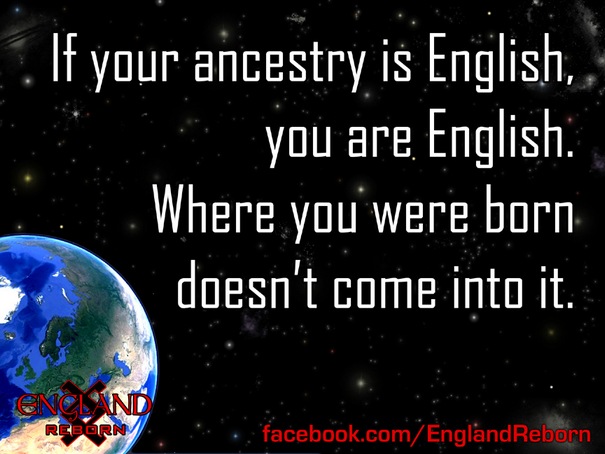The recent article by Eunjung Han in Nature on the subject of American ethnic identity continues to generate discussion here and there on the Internet. I don’t think the article will end the little controversies surrounding the question, however, because mere facts don’t always settle political/ethnic disagreements these days.
This piece at the Assistant Village Idiot blog points out some things that verify what I’ve believed and asserted. The writer tends to agree with both David Hackett Fischer’s and Colin Woodward’s assertions though as I’ve stated, I don’t hold those works as Holy Writ as some readers do. For instance the belief that broadly speaking the Northern colonies in early America represented distinct ethnicities in contrast to the Southern colonies. That’s an oversimplification, I know, but it is interpreted much that way by some who find it politically expedient to claim that the North and South represented disparate and incompatible peoples — both originally from Britain but irreconcilably different. There are also those who, following Fischer and/or Woodward, insist that the ‘Cavalier class’ in the South or the ‘Planter’ class represented a different people than Appalachia, or the Tidewater area, or the Midlands South, etc.
I think the differences, insofar as they exist or did exist are exaggerated, especially as they were scarcely mentioned as existing in earlier histories and commentaries from the literate classes in the pre-War South. They seem to have been discovered and emphasized only in recent times.
From the linked blog piece:
“Some things to note: Woodard’s Tidewater culture is not visibly distinct here, and the further distinctions of Upland South, Midlands, and Greater Appalachia are visible, but not quite the same as any of the three authors have claimed.”
That much, at least, indicates at least a tiny chink in the armor, but those partisans who see Fischer’s and Woodward’s works as gospel won’t concur.
Another point of mine is that the ‘New England Yankee’ stock long ago migrated West en masse, though some did stay behind in isolated areas, and many ‘Yankees’ settled the Western mountain states, notably Utah, where many Mormon converts went in the 19th century. I know this in part because it’s documented in a couple of history books, but also from my own family genealogy researches.
Incidentally once settled in that area most of these emigrants held to conservative politics — except lately as they have become newish converts to multiculturalism and open borders universalism. The popular belief among many pro-South people is that the New England Yankees still hold sway in their original Northeastern stronghold, or that they mysteriously control the whole system, though I’ve repeatedly offered evidence that this is not so; New England is multicultural and the towns founded by my ancestors are mostly populated by upper-middle-class ethnic refugees from New York City, Boston and other urban towers of Babel. Most of my New England cousins, however, are probably in Utah or the Far West and they are hardly ruling America.
The blogger in the linked piece says this:
“That Utah was ultimately settled by people who were Yankees rather than one of the other American coastal nations has been noted before – first by their own extensive genealogies. Joseph Smith was a northeastern Yankee. Make of that what you will.”
Yes, there are stubborn misconceptions about the various branches of ‘Albion’s Seed’ and their interrelationships. Why are these canards still rife, and growing more stubborn, given the data that is available?
I don’t know the full answer; it seems America is becoming more balkanized ethnically, and I know that it doesn’t benefit us in this time of crisis for the house to be divided against itself. We rubbed along for a good while without these new internecine squabbles. Those of us who are of British Isles ancestry should be able to make common cause without exacerbating existing divisions or inventing new ones in the name of ethnic pride or revanchism.
Do I advocate for a particularistic cause myself? Certainly I would like to see the English people, who are after all the core people of Britain regain a sense of identity that has been lost, suppressed by the globalist leaders of the UK. I’d like to see a resurgence of a healthy, non-divisive sense of pride in English achievements, rather than the English subsumed in the umbrella identity ‘British’. After all, can’t the Welsh be both British and claim their particularistic identity as Welsh? Don’t the Scottish claim their identity, and the Cornish? Why not the English?
‘British’ is a civic more than an ethnic category. Every immigrant in the UK claims to be ‘British.’
Regarding ethnic identity in America, the lines have been blurred even more, though the South retained more ethnic integrity until fairly recently because fewer immigrants settled in the South historically.
English colonial-stock Americans have more in common ethnically and culturally than today’s partisans want to admit.
People on the right often complain (justly) that those on the left are impervious to facts and that facts and data are immaterial to the leftist ideologues. There are such on the right as well. Too many postmoderns on both sides ignore facts in favor of ideology or politics.

